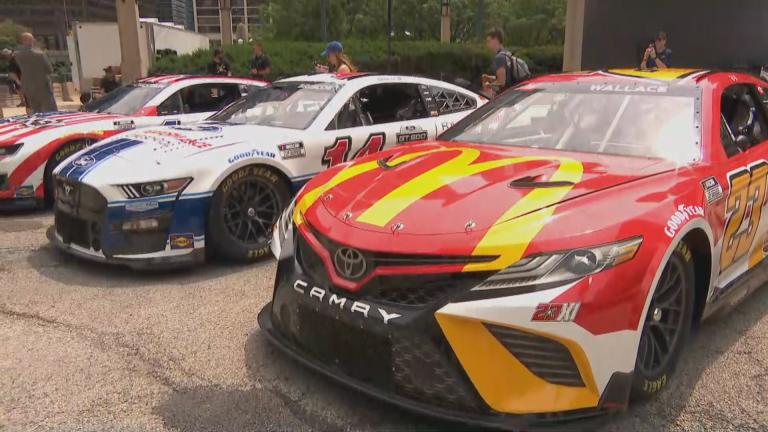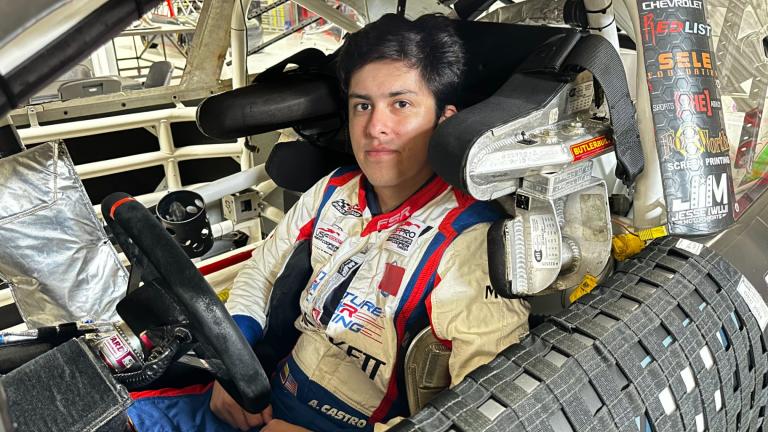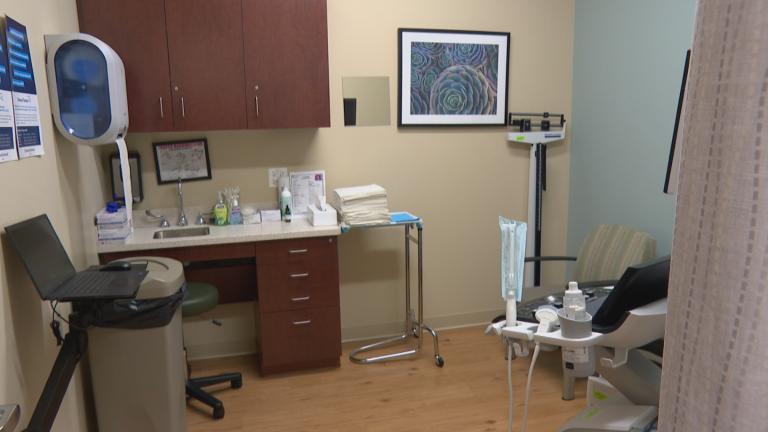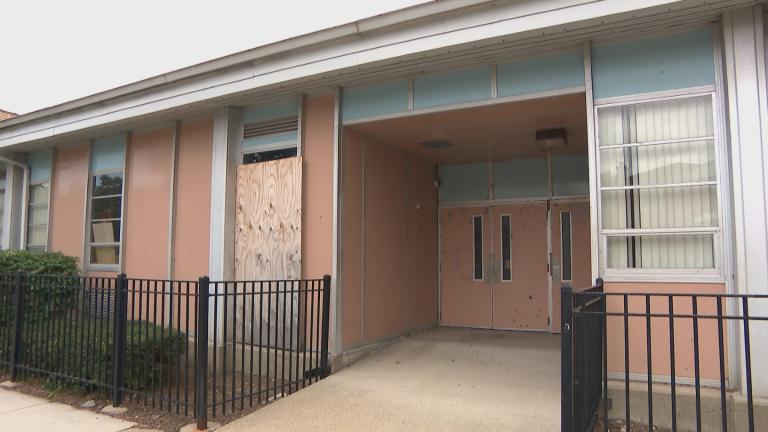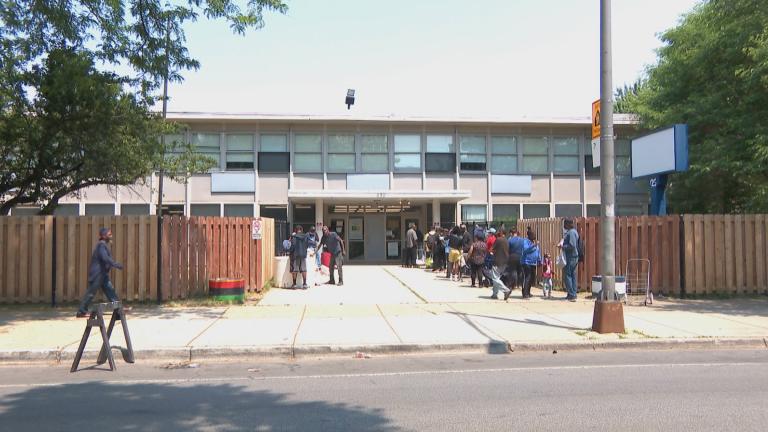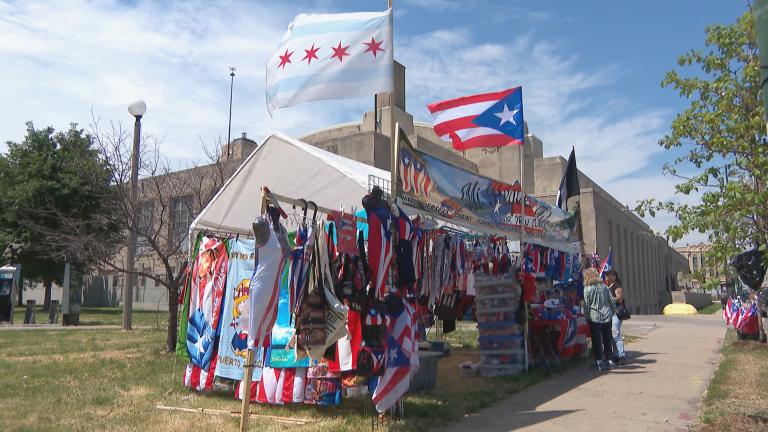On Chicago’s Southwest Side, nestled between Brighton Park and Garfield Ridge, sits Archer Heights, with the Stevenson Expressway marking the community’s northern border.
Residents say it’s a close-knit community, home to many essential workers, particularly those who work in restaurants, factories and warehouses. That’s because Pulaski and Archer avenues — two main artery streets in Archer Heights — are lined with restaurants, and its northwest corner is brimming with factories and warehouses. Near Midway Airport, the sound of airplanes flying overhead reaches most of the neighborhood.
Throughout the pandemic, Chicago’s Southwest Side has been a hot spot for the coronavirus. Many residents on the Southwest Side are essential workers, and multi-generational families often live together, sharing common spaces and making it easier for the virus to spread.
Archer Heights has around 13,000 residents, and roughly 77% of the community is Hispanic or Latino, according to a June 2020 community data snapshot. As seen in other neighborhoods across Chicago, the disproportionate impact of the coronavirus on Latino communities is evident in Archer Heights and across the Southwest Side.
The 60632 ZIP code, which includes all of Archer Heights and parts of surrounding communities like Brighton Park, Gage Park and South Lawndale, has a nearly 13% positivity rate as of Thursday, according to city data. That’s more than twice Chicago’s 6.6% citywide positivity rate.
Some well-known Archer Heights residents have died of COVID-19, including 911 dispatcher Guadalupe Lopez and his wife Maria.
“There’s still the need for more testing,” said Mayra Avila, marketing and business manager at United Credit Union and member of The Southwest Collective advisory board. While there is a testing site at Midway Airport, not all residents are able to travel to it because they might not have a car or reliable transportation, she said.
Over the summer, United Credit Union hosted drive-up and walk-up testing in collaboration with The Southwest Collective. Some cars had multiple families in the vehicle, which created more risk for exposure, Avila said.
Even before the pandemic, the Southwest Side lacked a strong health infrastructure, said Jaime Groth Searle, an Archer Heights resident and founder and president of The Southwest Collective.
“There’s not enough health care resources here,” Groth Searle said. “You go downtown, there’s a hospital every other block. You go up north, there are branches of Rush and branches of Northwestern, but you don’t have that down here. That system does not reach the Southwest Side at all.”
The coronavirus has only exacerbated this need, she said.
Video: Our full interview with Jaime Groth Searle, founder and president of The Southwest Collective.
As the COVID-19 vaccine rollout continues, many Americans appear to be hesitant to get the vaccine, particularly among Black and Brown residents, in part because of historic mistrust in medical institutions.
“One of the first things that we need to acknowledge is the lack of trust that members of our community have, but I’ve seen an increase in more people getting tested at these sites. One of the best things that I think has worked is partnering up with community organizations who have that trust with the community,” said state Rep Aarón M. Ortíz of the 1st district, which includes all of Archer Heights, and parts of Gage Park, Brighton Park and Garfield Ridge.
Ortiz said he hopes community leaders will get the vaccine to help encourage other residents to do the same.
Economic Impact in Archer Heights
Over 10 months into the pandemic, residents are in a devastating financial situation, said Mario Aguirre, CEO of United Credit Union, which has five branches across Chicago, with its corporate office in Archer Heights.
“We’re starting to see those funds be depleted. That tells me that they’re tapping into those reserves, those savings,” Aguirre said.
Francia Carranza is a senior at Lindblom Math and Science Academy, and a waitress at Peke’s Pozole, just south of 47th Street on Pulaski Avenue. She said the pandemic has made it difficult for her to save for college and to help support her family.
“I used to help a lot around the house with bills. My dad is the only one that has a job, and now I can’t help him as much and his business has also slowed down. So it has been impacting our family greatly,” Carranza said.
Business at Peke’s Pozole is much slower than normal, and customers don’t tip as much as they would if they were dining in, she said. Pozole is also a meal that is better enjoyed at the restaurant rather than taking a gallon home and serving yourself, she said.
Video: Our full interview with state Rep Aarón M. Ortíz.
Some residents are struggling with their mental health, said Archer Heights resident Krystal Robledo, co-founder of No Somos Locos Chicago, an online community for Latino residents to share their experiences with mental health.
“They’re dealing with grief, they’re dealing with loss. A lot of lives have been lost and we know that, and the Latino community has been one of the hardest hit,” Robledo said. Job loss and isolation has also impacted the mental health of residents.
Robledo founded No Somos Locos in 2019 after her brother died by suicide. Last year, the organization installed a community box called La Caja de la Comunidad, on South Keeler Avenue in Archer Heights. No Somos Locos stocks the box with mental health resources – from books about depression and anxiety to pamphlets with information — in English and Spanish.
“We wanted to defy that cultural stigma, especially in the Latino community, where if you are struggling with mental health, you are considered crazy, you know, you’re not sane,” Robledo said. “Especially after my brother passed away, I heard things like that. People said, ‘Oh, was he crazy, oh you’re family’s crazy,’ and things like that. That’s dangerous. It’s dangerous to stigmatize people. It keeps them from getting the help that they need.”
If you or someone you know is experiencing suicidal thoughts, you can call the National Suicide Prevention Lifeline at 1-800-273-8255.
“Chicago Tonight” is expanding its community reporting. We’re hitting the streets to speak with your neighbors, local businesses, agencies and leaders about COVID-19, the economy, racial justice, education and more. See where we’ve been and what we’ve learned by using the map below. Or select a community using the drop-down menu. Points in red represent our series COVID-19 Across Chicago; blue marks our series “Chicago Tonight” in Your Neighborhood.Community Reporting Series

